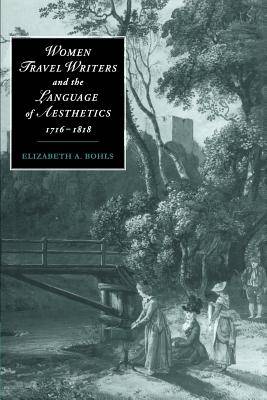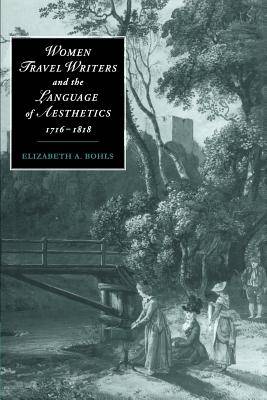
- Afhalen na 1 uur in een winkel met voorraad
- Gratis thuislevering in België vanaf € 30
- Ruim aanbod met 7 miljoen producten
- Afhalen na 1 uur in een winkel met voorraad
- Gratis thuislevering in België vanaf € 30
- Ruim aanbod met 7 miljoen producten
Zoeken
Women Travel Writers and the Language of Aesthetics, 1716 1818
Elizabeth A Bohls
€ 87,95
+ 175 punten
Omschrijving
British readers of the eighteenth and early nineteenth centuries eagerly consumed books of travel in an age of imperial expansion that was also the formative period of modern aesthetics. Beauty, sublimity, sensuous surfaces, and scenic views became conventions of travel writing as Britons applied familiar terms to unfamiliar places around the globe. The social logic of aesthetics, argues Elizabeth Bohls, constructed women, the labouring classes, and non-Europeans as foils against which to define the 'man of taste' as an educated, property-owning gentleman. Women writers from Mary Wortley Montagu to Mary Shelley resisted this exclusion from gentlemanly privilege, and their writings re-examine and question aesthetic conventions such as the concept of disinterested contemplation, subtly but insistently exposing its vested interests. Bohls' study expands our awareness of women's intellectual presence in Romantic literature, and suggests Romanticism's sources at the peripheries of empire rather than at its centre.
Specificaties
Betrokkenen
- Auteur(s):
- Uitgeverij:
Inhoud
- Aantal bladzijden:
- 324
- Taal:
- Engels
- Reeks:
- Reeksnummer:
- nr. 13
Eigenschappen
- Productcode (EAN):
- 9780521607100
- Verschijningsdatum:
- 10/06/2004
- Uitvoering:
- Paperback
- Formaat:
- Trade paperback (VS)
- Afmetingen:
- 166 mm x 230 mm
- Gewicht:
- 489 g

Alleen bij Standaard Boekhandel
+ 175 punten op je klantenkaart van Standaard Boekhandel
Beoordelingen
We publiceren alleen reviews die voldoen aan de voorwaarden voor reviews. Bekijk onze voorwaarden voor reviews.











